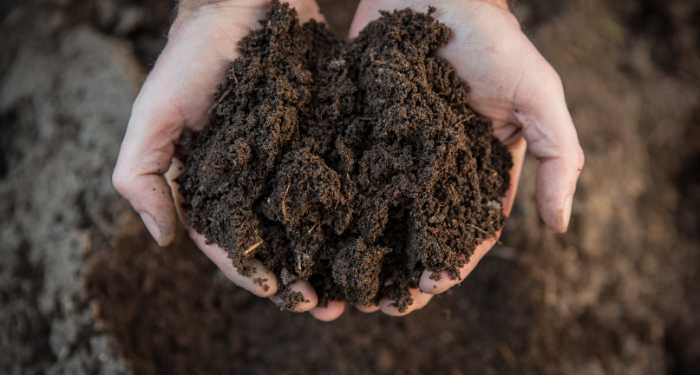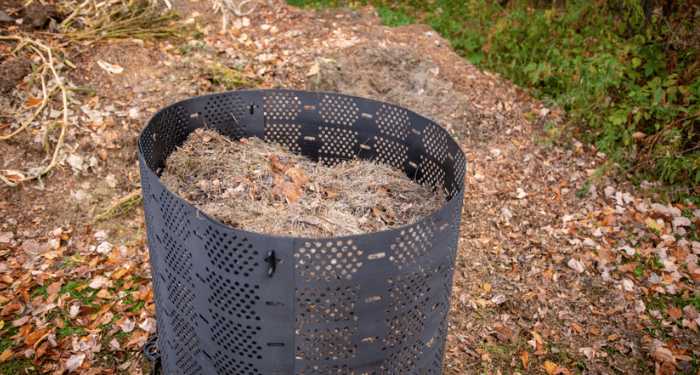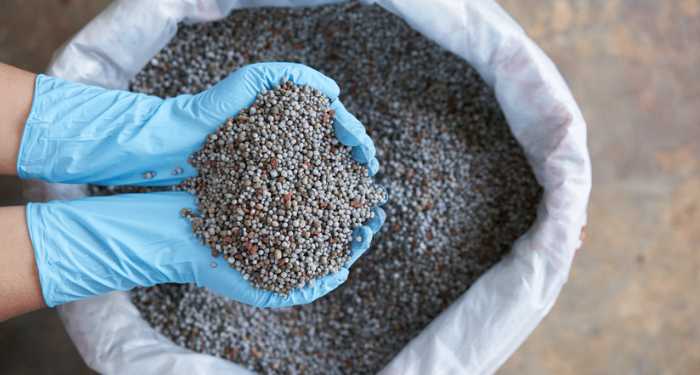Compost vs. Fertilizer: Which Product Is Better for Your Garden?
Posted May 3, 2022When talking about compost and fertilizer, there can be some confusion. Compost and fertilizer are not the same, but many people do not know some of the key differences and may use them interchangeably—both in reference and application. Since compost and fertilizer differ in their production, application, and end result, it’s important to make sure you are using the right product in your garden.
Simply put, compost enhances the soil, while fertilizer feeds the plants. This blog post will dig a little deeper into the differences between compost and fertilizer so you can decide when and where to use each product.
What is compost?
Compost is decomposed organic matter produced through an aerobic process called composting. Organic matter includes food scraps, yard waste, and paper product. When combined in the right environment, these materials will break down over time and create a nutrient-dense substance that resembles soil.

The four components of compost include:
-
Carbon
Carbon provides microorganisms with the energy they need to break down organic material. Sources of carbon include dry leaves, cardboard, newspaper, straw, and woodchips. Carbon-rich materials are called “browns.”
-
Nitrogen
Nitrogen assists in growing and reproducing organisms to oxidize carbon. Sources of nitrogen include fruit and vegetable peels, eggshells, grass clippings, leaves, and used coffee grounds. Nitrogen-rich materials are called “greens.”
-
Water
Water helps with the decomposition process and regulates the compost pile’s temperature. Ideally, a compost pile will have the moisture level of a wrung-out sponge. If the compost is too dry, you can add water; if it is too wet, you can add carbon-rich brown material to soak up excess moisture.
-
Oxygen
Like most living beings, the aerobic microorganisms that break down organic matter require oxygen to live. Without access to oxygen, some microbes will die, and others will switch to a type of respiration where oxygen is not required, called anaerobic respiration. Anaerobic conditions—like those found in landfills—cause the microbes to produce methane, which is a greenhouse gas roughly 25 times more potent than carbon dioxide. You can promote oxygen flow by incorporating light and fluffy materials (like dryer lint and sawdust) and turning the compost as needed.
The Benefits of Compost for Soil & Plant Health
Compost possesses an impressive ability to balance soil density and improve soil structure, regardless of the original conditions. When clay soil is present, compost helps loosen tightly bound particles, encouraging root growth, drainage, and aeration. In sandy soils, adding compost helps bind the soil, improving its water-holding capacity.
Compost’s unique structure also allows it to hold nutrients tightly enough to prevent them from washing away but loosely enough that plants can absorb them as needed. In addition to improving the soil’s structure, compost provides and feeds diverse life, including fungi, insects, worms, and other organisms that support healthy plant growth. These beneficial microbes compete with pathogens to suppress disease.

You can either purchase compost or make your own using a backyard composting system like the GEOBIN® Composter. If you have the outdoor space, creating your own compost saves you money and plays a vital role in environmental stewardship. Composting helps divert organic matter from landfills where it cannot properly decompose and releases methane.
By setting up a keyhole garden, you can create an ideal growing environment without transporting compost from the compost bin to your garden. Keyhole gardening is a great option for growing fruits and vegetables in areas with less-than-ideal soil. A raised garden bed allows you to control the growing environment, and incorporating compost gives your soil a boost of essential nutrients to promote healthy plant growth.
What is fertilizer?
Fertilizer is any material—of natural or synthetic origin—that is applied to soil or plant tissues to supply nutrients and increase crop yield. Fertilizers contain nutrients essential to healthy plant growth, including potassium, nitrogen, and phosphorus.

The Benefits of Fertilizer for Plant Growth
When applied to plants, fertilizer provides a boost of nutrients, allowing crops to grow bigger and faster. It works like a multivitamin for plants, supplementing nutrients that may be missing from the soil.
Nitrogen is required for all living things to grow. Soils with low nitrogen levels do not provide healthy growing conditions for plants, so nitrogen-containing fertilizers are used to increase nitrogen levels. Using fertilizer is a quick and easy way to address deficiencies.
The Drawbacks of Fertilizer
Unfortunately, only about 30–50% of the nitrogen present in the fertilizer gets absorbed by the crops (International Service for the Acquisition of Agri-biotech). The other 50% ends up in the atmosphere or washed away, ending up in waterways, including groundwater, rivers, lakes, streams, and oceans. Excessive nutrients lead to algal blooms and low-oxygen (hypoxic) waters that can kill fish and seagrass and reduce essential fish habitats. (National Oceanic and Atmospheric Administration). Prolonged use of commercial fertilizers can also cause long-term declines in soil quality and crop yield.
The good news is that soil scientists are working on ways to make fertilizer use more efficient to reduce the environmental impact of excess nitrogen.
The rising cost of fertilizer is another drawback for many people. Adding compost to home gardens can be a more economical and environmentally friendly alternative to using fertilizer.
Should You Use Compost or Fertilizer?
There is no one-size-fits-all answer to this question because it depends on your intended use and goals. As we discussed earlier, if soil health is your concern, incorporating compost into your garden soil can be beneficial. It’s always a good idea to try to improve the soil’s structure and provide it with the nutrients required to sustain healthy plant life.
If you have tried this, but still struggle with producing healthy fruits and vegetables, an organic fertilizer can be used in addition to compost to target nutrient deficiencies.
For more information on composting, check out our Beginner’s Guide to Composting.

